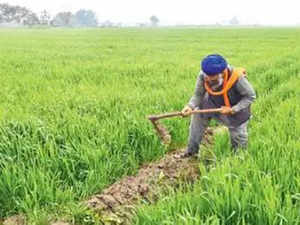
Under this ad-hoc scheme, commodities of perishable nature like apples, garlic, oranges, galgal, grapes, mushrooms, clove, black pepper, pineapple, ginger, red-chillies, onions and other perishable items are covered. The centre has approved enhancement of daily procurement limit to 40 quintal from 25 quintal per farmer under the Price Support Scheme (PSS) in which government agencies like Nafed, SFAC and other state owned agencies do physical procurement of pulses and oil seeds at minimum support price (MSP) announced by the central government..
“A farmer can sell 40 quintal produce daily. This will be applicable only for this Rabi season as farmers are facing problems in selling their produce in market due to nationwide lock down,” said a senior agriculture department official.
ET, in its report dated April 8 2020, had reported that the centre has given states
90-day open window for the procurement of pulses and oilseeds from the date of commencement of the purchase.
“There is no fixed date for commencement of procurement for this Rabi marketing season. States are free to start as per their convenience but they will have to complete the procurement exercise within 90 days,” the official said.
Apart from that, the centre has also invited proposals from state governments for implementation of Market Intervention Scheme (MIS) for the procurement of perishable agricultural and horticultural commodities whose prices have crashed recently.
Under this ad-hoc scheme, commodities of perishable nature like apples, garlic, oranges, galgal, grapes, mushrooms, clove, black pepper, pineapple, ginger, red-chillies, onions and other perishable items are covered.
In order to protect the growers of these commodities from making distress sale in the event of bumper crop during the peak arrival period when prices fall to very low level, government implements MIS for a particular commodity on the request of the state government concerned.
“Losses suffered are shared on 50:50 basis between centre and the state,” the official said.
Source: indiatimes.com

